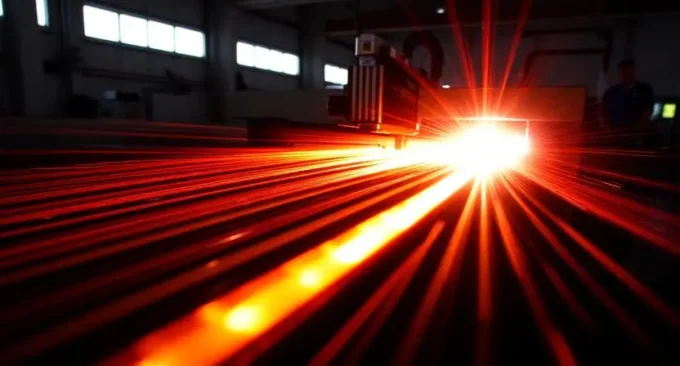When the power goes out, life can quickly become inconvenient, uncomfortable, and in some cases, unsafe. From keeping the heating running in the depths of winter to ensuring your fridge and freezer stay operational during a summer outage, a home backup generator is an investment in security and peace of mind. Choosing the right one, however, is not a decision to take lightly. The market offers a wide range of options, and finding a generator that matches your home’s needs requires careful consideration of features, capacity, fuel type, and even installation requirements. Understanding what to look for before you buy can save you money, reduce future frustrations, and ensure you have reliable power when you need it most.
Understanding Your Power Needs
The first and most important step when buying a home backup generator is to understand exactly how much power you need. This will depend on whether you want the generator to run essential appliances only or provide power to the entire home during an outage. Essential circuits might include the refrigerator, freezer, heating system, lighting in key rooms, and perhaps a home office setup. On the other hand, whole-house coverage will require a much larger capacity. Calculating your home’s power requirements involves adding up the wattage of each appliance you want to run and allowing some additional capacity for start-up surges. If this process feels daunting, an electrician can assess your needs and give you a clear target figure.
Choosing Between Portable and Standby Models
Home backup generators fall broadly into two categories — portable and standby. A portable generator is typically smaller, more affordable, and can be moved and stored easily when not in use. These are often manually started and require you to connect appliances directly or via a transfer switch. Standby generators, on the other hand, are permanently installed outside the home, connected to your electrical system, and often fuelled by natural gas or LPG. They can start automatically within seconds of a power cut, restoring your home’s supply without you needing to lift a finger. The right choice for you will depend on your budget, how frequently you expect to use the generator, and whether you prioritise convenience over cost.
Considering Fuel Type and Availability
Fuel choice has a big impact on convenience, running costs, and long-term reliability. Petrol generators are common in smaller portable models but tend to require more frequent refuelling and maintenance. Diesel generators, which are more commonly found in larger portable and standby models, are known for their durability and fuel efficiency, making them a popular choice for homeowners who want a dependable unit that can run for extended periods. Natural gas and LPG generators are often connected directly to your home’s existing gas supply, providing an almost limitless fuel source during an outage. Before making your decision, it’s worth considering how easy it will be to source fuel in your area, particularly during emergencies.
New or Used Generators
While many homeowners naturally lean towards buying new, there is a strong case for considering used generators. A high-quality, well-maintained used generator can provide the same reliable performance as a new unit for a fraction of the cost. Reputable suppliers will inspect, service, and test their second-hand stock before sale, ensuring you get a machine in excellent working condition. If you go down this route, it’s important to buy from a trusted dealer who can provide service history and warranty options. For those on a tighter budget, a used generator offers an affordable way to secure backup power without compromising on quality.
Installation and Space Requirements
Standby generators need to be installed by qualified professionals, not only to ensure safe connection to your home’s electrical system but also to comply with building regulations. The location must allow for adequate ventilation, be easily accessible for maintenance, and meet clearance requirements from windows and doors. Portable models also need a safe, outdoor space for operation, as they produce exhaust gases that should never be released indoors. Before purchasing, make sure you have a suitable installation plan in place, including a transfer switch if you want to connect the generator directly to your home’s circuits.
Noise Levels and Neighbour Considerations
Generators, especially larger models, can produce significant noise during operation. Standby units often include sound-dampening enclosures, but it’s still worth checking the manufacturer’s noise rating in decibels. Portable models may be louder, which could be an issue in densely populated neighbourhoods. A quieter generator not only makes life more pleasant during an outage but also reduces the likelihood of disturbing neighbours. Some local councils have restrictions on noise levels for permanent installations, so it’s worth checking these before committing to a particular model.
Runtime and Efficiency
One of the most practical factors to consider is how long the generator can run before refuelling. This is especially important if you live in an area prone to extended power outages. Larger fuel tanks and efficient engines mean fewer interruptions to top up the supply. Diesel generators are often preferred for longer runtimes, while natural gas and LPG models offer continuous operation as long as the mains supply is available. When comparing models, look at both fuel consumption rates and runtime at various loads to ensure the generator meets your expectations.
Safety Features
Modern generators come with a range of safety features designed to protect both the machine and the people using it. Automatic shutdown in the event of low oil levels, overload protection, and temperature monitoring are all valuable additions. For standby generators, automatic transfer switches ensure the system engages and disengages seamlessly, reducing the risk of electrical faults. Ground Fault Circuit Interrupter (GFCI) outlets can add another layer of safety for portable units used outdoors. It’s worth prioritising models with comprehensive safety measures, as these can prevent costly repairs and hazards in the long run.
Budgeting for the Full Cost
When budgeting for a home backup generator, it’s essential to factor in more than just the purchase price. Installation costs for standby models can be significant, especially if additional electrical or plumbing work is required. Portable models may require accessories such as a transfer switch or heavy-duty extension leads. Maintenance costs should also be considered, including oil changes, filter replacements, and periodic servicing. If you’re purchasing a used generator, you may want to set aside funds for a professional inspection and any necessary upgrades.
Maintenance and Longevity
A generator is only as reliable as the care it receives. Regular maintenance is crucial for ensuring your investment is ready to perform when needed. This includes routine checks on oil, filters, spark plugs, and fuel quality, as well as running the generator periodically to keep the engine in good working order. Standby generators often come with maintenance schedules provided by the installer, and some even offer remote monitoring systems that alert you to any issues. Choosing a model with widely available parts and service support will make ongoing upkeep easier and more cost-effective.
Preparing for Future Needs
When selecting a home backup generator, think about not just your current needs but how they might change in the future. If you plan to add more electrical appliances, extend your home, or install energy-hungry systems like air conditioning, you may require more capacity down the line. Choosing a slightly larger generator than you currently need can be a cost-effective way to future-proof your investment. This is also a consideration if you’re opting for a used generator — a high-capacity unit may offer more flexibility without a significant jump in price.
Making the Final Decision
Buying a home backup generator is a decision that blends practicality with peace of mind. By carefully assessing your power requirements, installation options, fuel preferences, and budget, you can select a generator that will serve you well for years to come. Whether you opt for a brand-new model or explore the value of used generators, the goal is the same — reliable, safe, and efficient power when the grid fails. Taking the time to make an informed choice will pay off the next time you find yourself facing an unexpected blackout.














Leave a comment